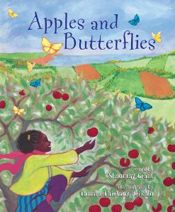Books Read in January 2013
 I got a slow start on my reading this year after nearly burning out in December trying to meet my reading challenge goals for last year. In addition, I took some time over my non-fiction selection this month, to savour ideas.
I got a slow start on my reading this year after nearly burning out in December trying to meet my reading challenge goals for last year. In addition, I took some time over my non-fiction selection this month, to savour ideas.
This year I’ve decided to go more slowly – and choose more freely. The core of my month’s reading list will be around a couple of challenges I’ve unofficially taken on, but because it’s unofficial if I don’t make it, I won’t stress.
1. WINTER: FIVE WINDOWS ON THE SEASON by Adam Gopnik (Non-fiction, Essays)
![]()
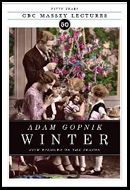 I chose to read this collection of Massey Lectures broadcast on CBC Radio to satisfy the Keyword Challenge hosted by Bev at My Reader’s Block. I also thought that with some insight on this frigid season, I could learn to dislike it a little less.
I chose to read this collection of Massey Lectures broadcast on CBC Radio to satisfy the Keyword Challenge hosted by Bev at My Reader’s Block. I also thought that with some insight on this frigid season, I could learn to dislike it a little less.
The five windows or views of winter that Gopnik considers are: Romantic Winter, Radical Winter, Recuperative Winter, Recreational Winter, and Remembering Winter.
This book is a fascinating mix of history, art, science, religion, popular culture, and philosophy and flows like a great lecture should. I highly recommend it.
Read this if: you’re a fellow winter-survivor and want to have ‘warmer’ feelings about this difficult season; you’re one of that unusual specie – a winterphile and want factoids to dazzle and convince your friends that you’re not insane; or you’re a lucky warm-weather inhabitant and want a taste of what the big chill is all about. 4½ stars
Thanks to Buried in Print who first tipped me to this book.
2. FLIGHT BEHAVIOR: A Novel by Barbara Kingsolver (fiction)
![]()
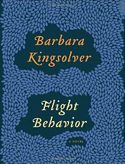 I approached Flight Behavior with mixed emotion. On one hand, I’ve loved every Kingsolver book I’ve ever read and rate her The Poisonwood Bible
I approached Flight Behavior with mixed emotion. On one hand, I’ve loved every Kingsolver book I’ve ever read and rate her The Poisonwood Bible as one of the best books in my reading lifetime. On the other hand, I roll my eyes (quite literally) at heroines with names like Juniper or Venetia or, in this case, Dellarobia, AND the book was purported to be full of butterflies. Dreams of fluff danced in my head.
But Kingsolver tackles a very serious issue in Flight Behavior: climate change, and the real-life destruction of the wintering nesting grounds of North America’s Monarch butterfly population in 2010. That she peoples this drama with the melodramatically named Dellarobia who makes a series of decisions that alienated her from this reader does not lesson the importance of that main issue, or for that matter, the beauty of her writing.
For concrete (albeit fictionally set) consequences of a complex issue, you could do far worse than this book.
Read this if: you don’t think climate is really changing our world; you recognize that climate change is real and would like great party talking-points on the subject; or you’re a Kingsolver fan. 4 stars
3. SOME TAME GAZELLE by
Barbara Pym (Fiction) ![]()
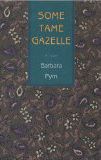 This is one of those read-alongs I mentioned: LibrayThing’s Virago Group is reading twelve of Barbara Pym’s mid-twentieth century novels to celebrate the centenary of her birth. This happens to be the only Pym that I’ve already read, and I enjoyed it just as much this time around.
This is one of those read-alongs I mentioned: LibrayThing’s Virago Group is reading twelve of Barbara Pym’s mid-twentieth century novels to celebrate the centenary of her birth. This happens to be the only Pym that I’ve already read, and I enjoyed it just as much this time around.
Read this if: you’re a fan of gentle English humour. 4 stars
4. THE OBSERVATIONS by Jane Harris (Fiction, Historical fiction)
![]()
The cover of this book (the debut novel for the author of Gillespie & I) tells me that it is set in 1863 Scotland, but other than a single reference to the “war in America”, the time period could be anytime in the 19th century. That it is Scotland, though, is obvious.
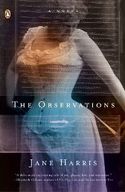 Bessy Buckley, a young teenager serving as a housemaid, is asked by her mistress to keep a journal. The blurb hints of something sinister coming of that, but Bessy discovers the purpose early on in the book and it’s not earth-shaking. In fact, I thought the book over-long for the plot.
Bessy Buckley, a young teenager serving as a housemaid, is asked by her mistress to keep a journal. The blurb hints of something sinister coming of that, but Bessy discovers the purpose early on in the book and it’s not earth-shaking. In fact, I thought the book over-long for the plot.
But other critics have raved about Bessy’s voice – and rightly so. Harris has captured a working class Irish/Scottish street slang that is endearing, even though it is oftentimes crude. And that voice was strong enough to garner several prizes, including a shortlisting for the 2007 Orange Prize for Fiction.
Be forewarned: Bessy’s language is sometimes obscene. A mild example: “Once or twice he got a jack on him would have put your eye out, you could see it poking behind his trousers .” But her life has made her so. In fact, sometimes it seemed that Bessy’s lively voice did not allow the true impact of her tragic past to affect the reader.
Read this if: you want to be glad you weren’t born into a 19th century British slum. 3½ stars
5. THE BLUE DRAGON (fiction, graphic novel, translated fiction)
![]()
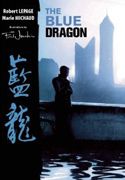 This oversized graphic novel (a little outside my usual genre) was recommended by Buried in Print, where you’ll find a longer review and explanation of the work. Written by Robert Lepage and Marie Michaud, illustrated by Fred Jourdain and translated from the Mandarin by Min Sun, The Blue Dragon is set in Shanghai and centres on a Canadian from Montreal who has come to China to adopt a baby girl.
This oversized graphic novel (a little outside my usual genre) was recommended by Buried in Print, where you’ll find a longer review and explanation of the work. Written by Robert Lepage and Marie Michaud, illustrated by Fred Jourdain and translated from the Mandarin by Min Sun, The Blue Dragon is set in Shanghai and centres on a Canadian from Montreal who has come to China to adopt a baby girl.
I kept returning to the artwork over and over, and it has three alternatives for an ending – you choose. It’s quite thought-provoking.
Read this if: you’ve ever wondered about the life of Canadians in China, or the difficulty of adopting there for a single woman; or you ever read ‘choose your own adventure’ books. 3½ stars
6. WHERE’D YOU GO, BERNADETTE? By Maria Semple (Fiction, YA?)

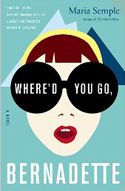 After all the raves about this book last year, I was disappointed by this novel. I so looked forward to the epistolary format but, honestly, the emails, letters and articles seemed forced, and the plot farcical.
After all the raves about this book last year, I was disappointed by this novel. I so looked forward to the epistolary format but, honestly, the emails, letters and articles seemed forced, and the plot farcical.
Was it a farce? (SPOILER ALERT!) What mother would leave her 13 year old daughter behind and go to live in Antarctica without a trace?
Or was I supposed to take seriously the serious issue of depression and related mental illness?
I’m just not sure what to make of this whole thing.
Thank you to Hachette Books from whom I won this book via Under My Apple Tree, hosted by Leslie.
Read this if: you want a slightly (?) farcical take on upper middle-class suburban Seattle. 3 stars
THE YELLOW BIRDS by Kevin Powers DNF
I started to read this acclaimed novel about a friendship, set during the war in Iraq, among other reasons because I wanted to try the Literature & War Read-Along, hosted by Beauty is a Sleeping Cat.
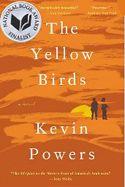 This year, I’ve determined that I’m censoring my reading more closely than I did in 2012. In particular, one big trigger for the red flags to go up is that four letter word that starts with f that used to be so shocking. Thing is, I want it still be to be shocking and I’m tired of its overuse in modern literature . I’m willing to overlook the occasional use within a novel – once or twice perhaps for effect but that’s my limit.
This year, I’ve determined that I’m censoring my reading more closely than I did in 2012. In particular, one big trigger for the red flags to go up is that four letter word that starts with f that used to be so shocking. Thing is, I want it still be to be shocking and I’m tired of its overuse in modern literature . I’m willing to overlook the occasional use within a novel – once or twice perhaps for effect but that’s my limit.
It’s a shame about The Yellow Birds, which I was looking forward to very much. The book begins with the narrator’s voice – and no profanity in sight. It was when the soldiers started speaking that the trouble began. And, yes, no doubt soldiers do talk like that. But I don’t want to read it. I put the book down at page 20.
It’s a shame to miss out on this story which I presume is actually quite good – but there are lots of other stories out there to fill the void.
So, anything here intrigue you? Anything you’ve read already – and agree or disagree with my assessment?
Links for Canadian Readers:
Winter: Five Windows On The Season
Flight Behavior
The Poisonwood Bible: A Novel
Some Tame Gazelle
The Observations
Blue Dragon
Where’d You Go, Bernadette: A Novel
The Yellow Birds: A Novel


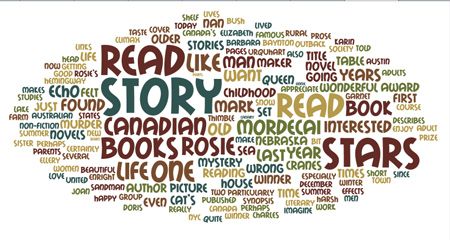
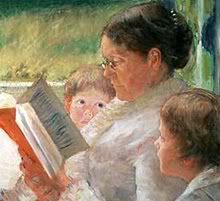 I didn’t intend to read any picture books this month, but some of my library holds from last year started to arrive, and I couldn’t resist reading them!
I didn’t intend to read any picture books this month, but some of my library holds from last year started to arrive, and I couldn’t resist reading them!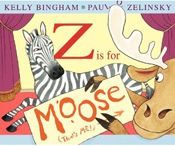 Big, gangly moose is impatient and starts peeking on stage & asking if it’s his turn yet at letter D. Zebra is cool and continues to call letters – and then, after all of Moose’s finagling, chooses Mr. Mouse for the letter M.
Big, gangly moose is impatient and starts peeking on stage & asking if it’s his turn yet at letter D. Zebra is cool and continues to call letters – and then, after all of Moose’s finagling, chooses Mr. Mouse for the letter M.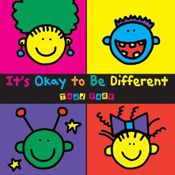 Everybody wants to belong – especially kids. So when a child is “different” from the others in his or her group, it can be easy for them to feel bad about themselves. Todd Parr wants every kid to know “You are special and important just because of being who are”, and he’s written
Everybody wants to belong – especially kids. So when a child is “different” from the others in his or her group, it can be easy for them to feel bad about themselves. Todd Parr wants every kid to know “You are special and important just because of being who are”, and he’s written 